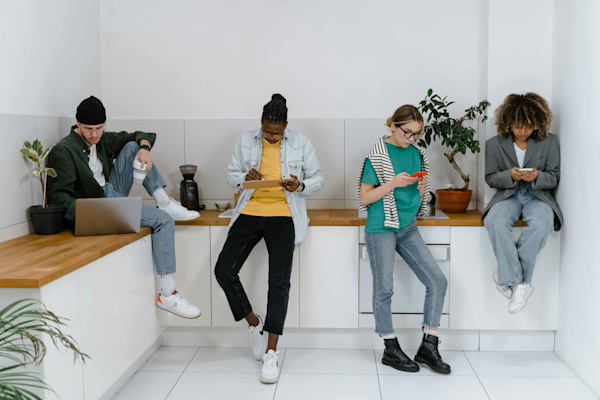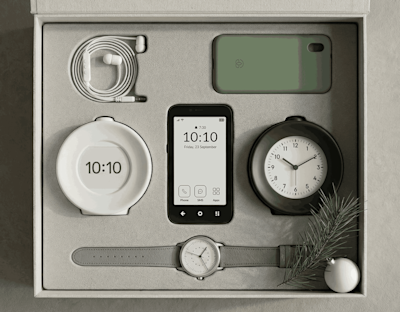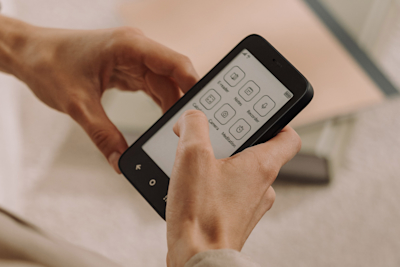
Are Smartphones Breaking Social Norms?
For as long as people have gathered, unspoken rules have shaped our interactions. We greet each other, we make eye contact, we offer small talk as a bridge into deeper conversation.
These habits, though sometimes perfunctory, are the glue of social life. However, in the age of smartphones, many of these small rituals are fraying.
A viral conversation, centered around a novel concept, the so-called “Gen Z stare,” recently spotlighted this shift.
Young service workers were criticized for greeting customers with blank stares instead of the expected “Hi, how are you?” What some saw as rudeness, others described as anxiety or simply a different set of norms. Smartphones, and let’s be honest, the culture they’ve created, are central to this story.
Smartphone use is changing the way we interact with one another.
The Smartphone Effect on Social Etiquette
Smartphones have reshaped how people behave in public and private spaces. Consider how often you see someone at a café scrolling while seated with friends, or how many times conversations pause because someone checks a notification.
Although these moments may seem trivial, they actually reveal something deeper: the pull of digital attention often overrides face-to-face connection.
And, let’s be clear, this isn’t accidental. Smartphones are designed to stimulate addictive tendencies. Infinite scroll is real, push notifications, and algorithmically-driven feeds train us to keep looking, keep swiping, keep refreshing.
Attention is finite. The more attention we give to our screens, the less we have available for each other. Over time, this can weaken empathy, attentiveness, and even our ability to hold direct conversations without distraction.
Research supports this growing concern. A field experiment by psychologists Ryan Dwyer, Kostadin Kushlev, and Elizabeth Dunn found that people enjoyed meals with friends less when their phones were present. Even a quick glance at a screen increased distraction, which reduced feelings of connection and engagement. Over time, these small interruptions can quietly reshape how we experience social life itself. [1] There’s another layer to this shift: the way digital spaces distort our sense of accountability. Online, many people act as if they are invisible, detached from the social consequences that guide behavior in face-to-face settings. Behind a screen, empathy tends to diminish and inhibitions lower. Words that would feel inappropriate or confrontational in person are often expressed freely online. This perceived anonymity creates a space where impulsive reactions and hostility spread more easily, subtly redefining what we consider acceptable interaction.
We also need to be fair & say that two things could be true at the same time. Yes, smartphones have also created new forms of connection. They allow us to sustain long-distance relationships, expand social networks, and share parts of our lives instantly.
However, this convenience comes at a cost. Excessive use often replaces deeper in-person exchanges with quick digital interactions, leaving us more connected yet paradoxically lonelier.
Shifting Social Norms
Traditional etiquette, like greeting strangers, making eye contact, or giving undivided attention, has given way to new norms centered around screens.
In some circles, it is perfectly acceptable to text at the dinner table or scroll while someone else is speaking. What might have been considered impolite just a decade ago is, now, commonplace.
The erosion of older norms didn’t happen in isolation. Broader social changes, from remote work to post-pandemic lockdown habits, have provided fertile ground for phone-centered behaviors to take root.
Social media has also trained us to see the world in fragments: post by post, clip by clip. So when we are offline (read: our faces are not glued to a screen), this translates into difficulty with conversational flow, or even basic small talk.
Psychotherapists describe what looks like the “Gen Z stare” not as defiance, but more of a cognitive traffic jam.
After growing up with asynchronous communication, texts, DMs, voice notes, for many individuals, responding in real time can feel overwhelming.
A few seconds of silence or a blank stare might simply be the brain trying to catch up.
What the Data Shows
These observations aren’t just anecdotal. Large-scale surveys, like the Understanding America Study (UAS), suggest that digital life may be reshaping personality traits themselves. [2]
Since smartphones became mainstream, researchers have documented significant changes among young adults. One of the most striking shifts is a decline in conscientiousness, which is the trait most closely associated with responsibility, follow-through, and self-control.
Why does this matter? Conscientiousness underpins many of the social norms we once took for granted: showing up on time, remembering to follow through on commitments, or even responding politely when addressed.
As the UAS data and related research suggest, the constant pull of digital distraction has made it easier than ever to cancel plans, ghost someone, or disengage from in-person interactions.
Other measures in the Understanding America Study, such as cognitive assessments and ecological momentary surveys, highlight similar trends.
Real-time attention is fragmented, and young people report more difficulty sustaining focus during direct interaction.
This lends weight to the idea that what looks like aloofness or rudeness may instead be the product of a generation conditioned by asynchronous communication and endless digital stimuli.
If you want to read more about how digital technology impacts our focus & attention check out these articles posted on our blog:
How to Reclaim Control in the Attention Economy
Attention: The precious currency we’re giving away for free
Finding Balance Through Mindful Tech Use
None of this means smartphones should be abandoned. They’re powerful tools with real benefits. However, as a society, we are still learning how to integrate them into our lives without losing something essential.
These days, the challenge is not just about limiting screen time, it’s about practicing intentional technology use.
This is where mindful tech use comes in. Being deliberate about when and how we engage with our devices helps protect space for human connection.
The Power of GENUINE Human Connection is REAL
READ: The Power of Human Connection
It could be as simple as putting your phone away during meals, giving someone your full attention when they’re speaking, or setting boundaries for social media use.
At Mudita, we design technology that supports this kind of intentional living. Devices like the Mudita Kompakt encourage healthier habits by reducing unnecessary distractions, prioritizing essential communication, and giving users more freedom to be present in the real world.
The goal is not disconnection for its own sake, but a healthier balance between digital convenience and human connection.
Are you guilty of bad smartphone habits?
A New Etiquette for the Digital Age
Smartphones are undeniably breaking traditional social norms, but they’re also reshaping them. Just as etiquette has evolved through every technological shift, from the telephone to the internet, society will eventually settle on new expectations for respectful, balanced interaction.
In the meantime, the choice is ours. Each of us can decide whether to follow the path of default distraction or to create intentional space for presence.
Greeting someone warmly, making eye contact, or simply putting the phone away during conversation are small acts, but they carry weight.
They remind us that behind every screen, and across every counter, there is a human being who deserves our attention.
Related stories

The Great Disconnect & How Technology is Changing Relationships
Technology keeps us reachable 24/7, but often emotionally unavailable. Discover how digital habits affect relationships and how to reconnect offline.

Introducing 8 Days of Mindful Gifting
Mudita presents 8 Days of Mindful Gifting. One new promotion each day, Dec 5–12 at 12:00 CET. Visit daily for meaningful, intentional gift ideas.

How Mudita Kompakt Apps Help Reduce Screen Time
Explore how Mudita Kompakt apps reduce screen time through intentional design, offline tools, and distraction-free functionality.
If you'd like to receive the best stories from our blog, keep up to date with our progress and get notified about our product releases and special discounts.